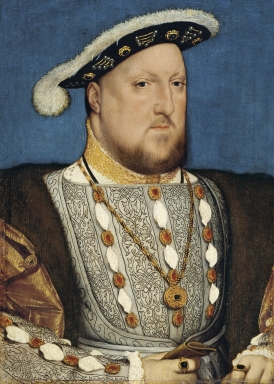Tiffany is an ancient name – it’s the medieval form of the Greek name Theophania (feminine for Theophanes, meaning “appearance of God”), and was traditionally given to girls born on January 6th, or Epiphany. Much more recently, Tiffany became popular in light of the 1961 film Breakfast at Tiffany’s. If you’re unfamiliar with the movie or book, the story gets its name from the jewelry shop, not a character.
As a trendy name becomes trendier, more spellings appear. From the time Tiffany entered the top 1000 in 1962 to its peak in 1988, and even afterwards, over 50 different ways to spell Tiffany appeared in the Social Security Administration’s birth data. I’ve tried to find them all.
Definite spellings:
- Teffani – debuts 1971 with 5 girls; only appearance. Might be influenced by variation of Stephanie.
- Teffanie – debuts 1969 with 6 girls; only appearance.
- Teffany – debuts 1966 with 8 girls, peak in 1977 with 16 girls. Last appearance 1993.
- Tephanie – debuts 1968 with 6 girls, peak in 1982 with 14 girls. Last appearance 1988. It’s just Stephanie without the ‘S!’
- Tifanee – debuts 1980 with 5 girls, peak in 1987 with 9 girls. Last appearance 1991.
- Tifani – debuts 1967 with 12 girls, peak in 1981 and 1988 with 39 girls. Last appearance 2010.
- Tifanie – debuts 1970 with 8 girls, peak in 1980 with 34 girls. Last appearance 2001.
- Tifanny – debuts in 1980 with 7 girls, peak in 2003 and 2007 with 12 girls. Last appearance 2009.
- Tifany – debuts in 1966 with 5 girls, peak in 1982 with 66 girls. Last appearance 2013.
- Tiffaine – debuts in 1986 with 5 girls; only appearance.
- Tiffane – debuts in 1970 with 6 girls, peak in 1981 with 20 girls. Last appearance 1998.
- Tiffanee – debuts in 1969 with 8 girls, peak in 1988 with 43 girls. Last appearance 2002.
- Tiffaney – debuts in 1965 with 5 girls, peak in 1980 with 142 girls. Last appearance 2009.
- Tiffani – debuts in 1962 with 9 girls, peak in 1981 with 643 girls, 5 girls in 2021.
- Tiffanie –debuts in 1962 with 6 girls, peak in 1980 with 470. Last appearance 2020.
- Tiffannee – debuts in 1978; only appearance.
- Tiffanni – debuts in 1971 with 7 girls, peak in 1987 and 1994 with 8 girls. Last appearance 1997.
- Tiffannie – debuts in 1971 with 6 girls, peak in 1986 with 15. Last appearance in 1995.
- Tiffanny – debuts in 1968 with 6 girls, peak in 1982 and 1984 with 21 girls. Last appearance 2006.
- Tiffany – debuts 1942 with 7 girls. Peak in 1988 with 18364 girls. Entered top 1000 in 1962, peaked 1982 and 1988 (with highest percentage in ’88). Current rank: #864 with 315 girls.
- Tiffanye – debuts 1972 with 7 girls. Peak in 1980 with 10 girls. Last appearance 1985.
- Tiffeney – debuts in 1970 with 6 girls. Peak in 1982 and 1983 with 7 girls. Last appearance 1985.
- Tiffeny – debuts 1968 with 6 girls. Peak in 1989 with 31 girls. Last appearance 2003.
- Tifffany – debuts 1988 with 6 girls; only appearance.
- Tiffiani – debuts 1980 with 5 girls. Peak in 1980 and 1992 with 5 girls. Last appearance 1992.
- Tiffiany – debuts 1966 with 7 girls. Peak in 1982 with 50 girls. Last appearance 1999.
- Tiffinay – debuts 1971 with 5 girls. Peak in 1976 with 8 girls. Last appearance 1988.
- Tiffine – debuts 1971 with 8 girls, peak in 1984 with 18 girls. Last appearance 1995.
- Tiffinee – debuts 1973 with 5 girls, peak in 1988 with 10 girls. Last appearance 1990.
- Tiffiney – debuts 1966 with 10 girls, peak in 1981 with 63 girls. Last appearance 2001.
- Tiffini – debuts 1964 with 7 girls, peak in 1980 with 71 girls. Last appearance 2007.
- Tiffinie – debuts 1967 with 8 girls, peak in 1981 and 1982 with 22 girls. Last appearance 1996.
- Tiffiny – debuts 1964 with 10 girls, peak in 1980 with 144 girls. Last appearance 2008.
- Tiffnay – debuts 1975 with 6 girls, peak in 1981 with 12 girls. Last appearance 1989.
- Tiffney – debuts 1962 with 7 girls, peak in 1980 with 66 girls. Last appearance 2002.
- Tiffni – debuts 1970 with 11 girls, peak in 1970 with 11 girls. Last appearance 1971.
- Tiffnie – debuts 1970 with 5 girls; only appearance.
- Tiffny – debuts 1972 with 7 girls. Peak in 1984 with 12 girls. Last appearance 1988.
- Tiffoni – debuts 1972 with 6 girls; only appearance.
- Tiffonie – debuts 1971 with 5 girls. Peak in 1971, 1975, and 1976 with 5 girls. Last appearance 1976.
- Tiffony – debuts 1966 with 5 girls, peak in 1980 with 16 girls. Last appearance 1990.
- Tifini – debuts 1967 with 5 girls, peak in 1982 with 12 girls. Last appearance 1995.
- Tifinie – debuts 1971 with 5 girls, peak in 1980 with 6 girls. Last appearance 1980.
- Tifiny – debuts 1979 with 5 girls, peak in 1980 with 6 girls. Last appearance 1980.
- Tifney – debuts 1970 with 7 girls, peak in 1970 and 1977 with 7 girls. Last appearance 1982.
- Tifni – debuts 1980 with 5 girls; only appearance.
- Tifphanie – debuts 1976 with 6 girls; only appearance.
- Tiphanee – debuts 1995 with 5 girls; only appearance.
- Tiphani – debuts 1971 with 6 girls, peak in 1988 with 24 girls. Last appearance 2007.
- Tiphanie – debuts 1967 with 5 girls, peak in 1988 with 32 girls. Last appearance 2009.
- Tiphany – debuts 1968 with 5 girls, peak in 1993 with 15 girls. Last appearance 2001.
- Tyfani – debuts 1990 with 7 girls; only appearance.
- Tyffani – debuts 1980 with 7 girls, peak in 1987, 1993, and 1995 with 11 girls. Last appearance 2001.
- Tyffanie – debuts 1979 with 5 girls, peak in 1985 with 7 girls. Last appearance 1992
- Tyffany – debut 1975 with 7 girls, peak in 1989 with 13 girls. Last appearance 2000.
The names in bold are the ones that were still being given to babies in 2016.
Uncertain spellings:
- Taffani – debuts 1972 with 5 girls, peaks in 1972 and 1992 with 5 girls. Last appearance 1992. Sounds more like Daphne.
- Taffany – debuts 1967 with 6 girls, peaks 1988 with 24 girls. Last appearance 1994.
- Taffney – debuts 1970 with 5, peaks 1970 and 1974 with 5 girls. Last appearance 1974.
- Tiffancy – debuts 1975 with 5 girls, peak in 1986. Last appearance 1988.
- Tiphaine – debuts 1976 with 5 girls; only appearance.
- Tippany – debuts 1982 with 6 girls; only appearance.
Names Inspired by Tiffany:
- Latiffany – debuts 1974 with 6 girls, peak in 1987 with 22 girls. Last appearance 1994.
- Tiffanique – debuts 1992 with 5 girls, peak in 1993 with 6 girls. Last appearance 1993.
- Tiffaniamber – debuts 1993 with 6 girls, peak in 1997 with 9 girls. Last appearance 1997.
- Tiffanyamber – debuts 1994 with 8 girls, peak in 1994 and 1998 with 8 girls. Last appearance 1999.
- Tiffanyann – debuts in 1981 with 7 girls.
- Tiffanymarie – debuts 1987 with 5 girls.
- Tiffay – debuts 1974 with 6 girls, peak in 1987 with 28 girls. Last appearance 1988.
- Tiffin – debuts 1966 with 5 girls, peak in 1968, 1977, and 1980 with 7 girls. Last appearance 1982.
- Tiffy – debuts 1974 with 5 girls, peak in 1981 with 7 girls. Last appearance 1981.
There are only two spellings of Tiffany parents still give their daughters (that we know of), but once-upon-a-time it was a hip name. The Tiffany you find on the playground today is probably a mom, not her child. Give it another couple of generations or a resurgence in medieval baby names and it’s sure to return!
Do you have a favorite spelling of Tiffany? Have you met someone with an unusual spelling of this name, even one that didn’t make this list? Let me know!
Sources:






